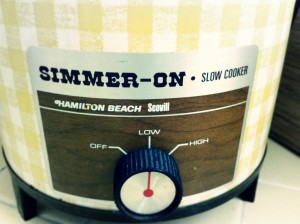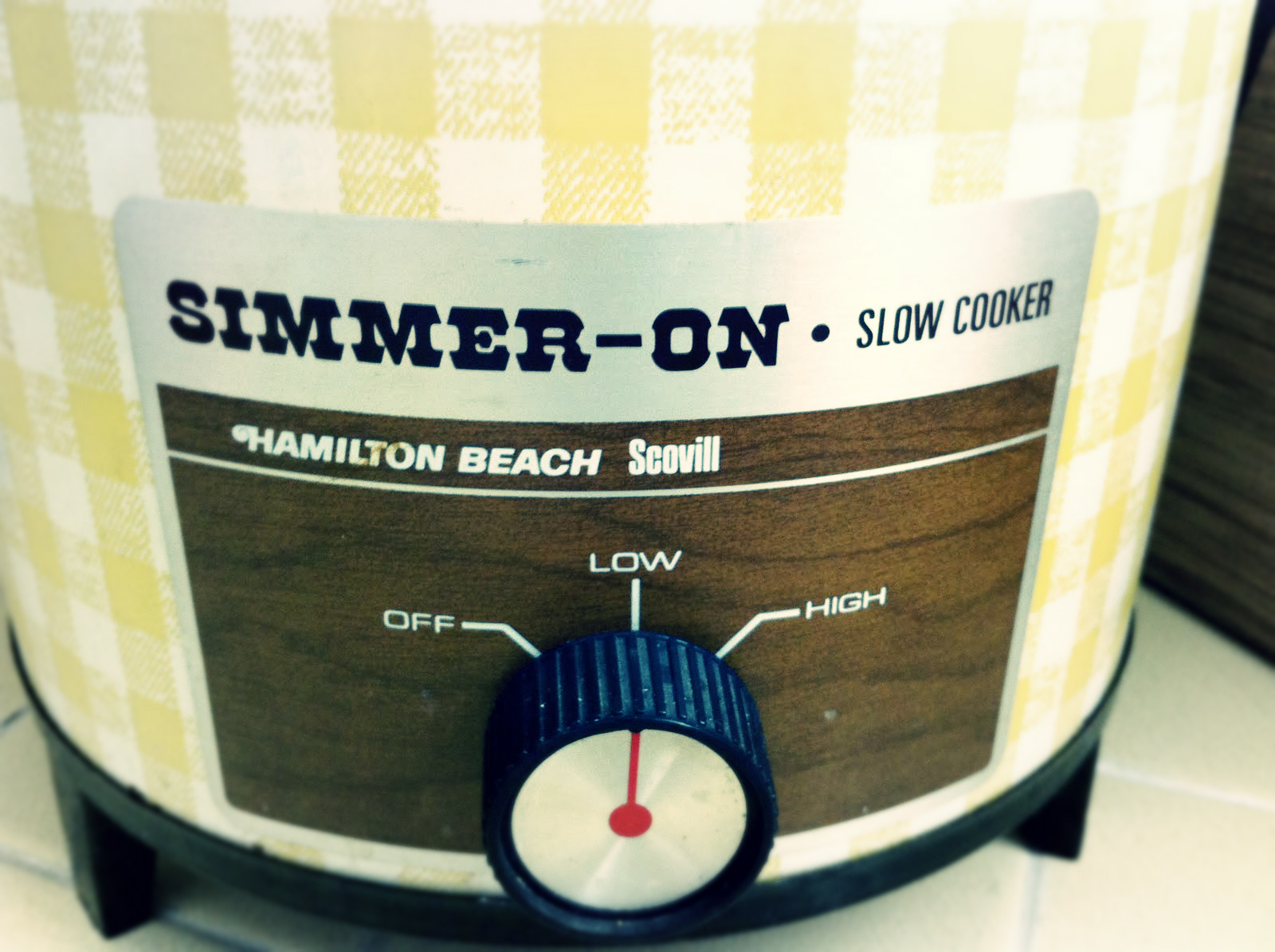 When you’re living in a small space, or share a kitchen, ideas about how to live and eat well using one appliance are always welcome. Here’s another. The price of good slow cookers has been dropping in recent years, and a small slow cooker will now cost you no more than £20. And anyway, it’s not all about money. It’s also about time: how many people are leaving for work at 6 o’clock in the morning and not seeing home again until after half past nine?
When you’re living in a small space, or share a kitchen, ideas about how to live and eat well using one appliance are always welcome. Here’s another. The price of good slow cookers has been dropping in recent years, and a small slow cooker will now cost you no more than £20. And anyway, it’s not all about money. It’s also about time: how many people are leaving for work at 6 o’clock in the morning and not seeing home again until after half past nine?
A slow cooker, which uses less power than conventional methods for any given meal, is a way around both problems. A slow cooker meal can take 8 hours to cook, and the slow cooker will thereafter keep it warm until you are ready to eat. Furthermore, slow cookers work particularly well with cheaper cuts of meat, slowly breaking down the fibres until your pork, or beef, or chicken, or lamb, is meltingly tender. From a purely health-related point of view, it’s worth noting that slow cookers keep the moisture in the food far better than other modes of cooking, keeping vitamin and mineral loss to a minimum.
A slow cooker should not be treated – at least at the outset – as a “set it and forget it” machine, but given its versatility, buying a timer plug or extension and learning the foibles of your own machine and your favourite recipes for it may well leave you with a situation where you can indeed set the machine before leaving for work, knowing you’ll have a delicious meal to come home to.
With slow cooking, focus on stews, soups, curries, pot roast and whole chicken (which can itself then feed you for the best part of a week in a variety of ways, and open the way to some extraordinary stock.
Apartment Therapy’s “The Kitchn” blog has a wide range of starter recipes and tips for slow cooking with some gesture at style.

Here’s a chap with views on how best to cook rice.
http://www.blogger.com/comment.g?blogID=8859456735165996893&postID=4842205830857187134
He and his pals refer to “chicken-bone broth” which seems to be what you and I call ‘stock’.